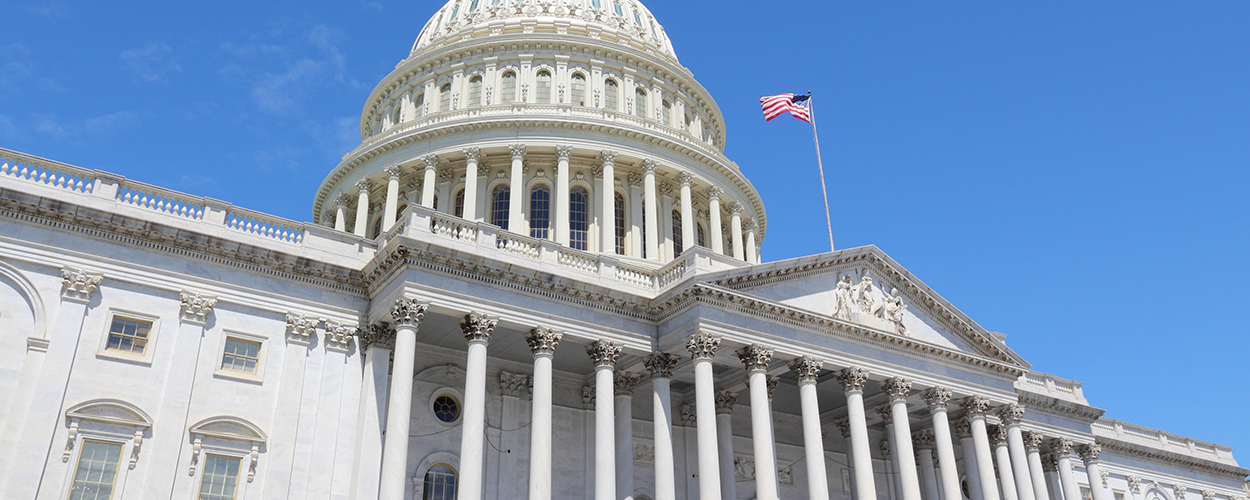This website uses cookies so that we can provide you with the best user experience possible. Cookie information is stored in your browser and performs functions such as recognising you when you return to our website and helping our team to understand which sections of the website you find most interesting and useful.
Business News Labels & Publishers
Statutory music rights database proposed in US Congress
By Chris Cooke | Published on Friday 21 July 2017

While the American music industry was busy welcoming proposed legislation to overcome the 1972 quirk in US copyright law earlier this week, the MIC Coalition – which lobbies on music rights issues for the radio, tech and hospitality sectors – has been bigging up another music-themed proposal in Washington.
The Transparency In Music Licensing & Ownership Act has been proposed by Republicans Jim Sensenbrenner, Blake Farenthold and Steve Chabot as well as Democrat Suzan DelBene, and would oblige the US Copyright Office to build a publicly accessible database of music rights ownership information, while limiting the remedies available to copyright owners if they fail to provide the required data for the new system.
The lack of a publically-accessible central database of music rights information – linking recordings to songs and listing who currently owns and/or controls those works – has been much debated within the music community for years now, of course. The lack of such a database has always been an issue, though it has become much more of a problem in the digital era, especially on the music publishing side.
Attempts by the music publishing sector to build a Global Repertoire Database failed, though various other initiatives continue in the music rights data domain, many involving the collecting societies who, generally, have the best data available, even if it is not fully comprehensive or publicly available. And, of course, there has been much chatter in the last couple of years about how the blockchain could help distribute music rights data.
One of the reasons for the lack of a decent music rights database is that in most countries copyright is an unregistered right, so there is no central registry where copyright owners log their works as they are created. Actually, in the US there is some copyright registration overseen by the Copyright Office, though that hasn’t helped much, confirmed by the total mess around the payment of mechanical royalties on songs Stateside that has resulted in multiple lawsuits involving songwriters and streaming services.
Under the Transparency In Music Licensing & Ownership Act, the US Copyright Office would be required “to establish and maintain a current informational database of musical works and sound recordings”, and to that end would have the power “to hire employees and contractors, promulgate regulations, and spend appropriated funds necessary and appropriate to carry out these functions”. The resulting database would have to be “publicly accessible … in its entirety and without charge, and in a format that reflects current technological practices, and that is updated on a real-time basis”.
In many ways, that sounds like just the sort of thing that everyone in the music community has been busy agreeing should be built. Though music rights owners won’t necessarily welcome the stick in the proposed legislation that forces them to participate and to ensure they provide all the data the Copyright Office would need.
The proposals would also “limit the remedies available to a copyright owner to bring an infringement action for violation of the exclusive right to perform publicly, reproduce or distribute a musical work or sound recording if that owner has failed to provide or maintain the minimum information required in the database”.
Commenting on the proposed transparency act, Sensenbrenner said: “When it comes to rules and regulations, simpler is always better. Streamlining the music licensing process into one, easily accessible database is a straightforward way to help our nation’s business owners while ensuring copyright owners are fairly compensated for their work”.
Backing the proposals, the MIC Coalition said: “All stakeholders in the music marketplace benefit when current and accurate information about copyright ownership and licensing is easily accessible. Despite explosive growth in access to information online, no comprehensive and actionable database of music copyright ownership and licensing exists today. Instead, there are a small number of proprietary databases that cover only some copyrighted works, like those maintained by the performing rights organisations that license song performances”.
Listing its issues with those proprietary databases, the Coalition went on: “Those databases are not only not comprehensive or interoperable, they explicitly state that users cannot rely on the information to make licensing decisions. As a result, businesses that offer music have no ability to make rational decisions about which licences best fit their music needs”.
Continuing, the MIC statement states: “The lack of an authoritative public database creates problems for venues and small businesses including restaurants, taverns, wineries, and hotels. For example, venues are declining to host live musicians rather than risk potential liability due to lack of up-to-date and actionable licensing information. The lack of a database is also a challenge for local broadcasters and digital music streaming services that rely on accurate copyright information to provide music to millions of consumers”.
Concluding, the MIC says it “believes that transparency is a necessary baseline in creating a more sustainable and equitable system” and that therefore “this legislation is an essential step to promoting a vibrant economy for music and greater fairness in the music marketplace overall”.





